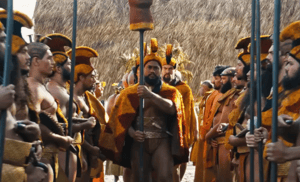Public Interest Journalism funded through NZ On Air
Being of Pacific descent is something that Michelle Fatani (nee-Brunt-Tiueti) and Va’a Magalogo are both proud of. Both of Samoan and Tongan, it is evident that the duo are immersed in their cultures.
However, their experiences haven’t always been great, as they faced dilemmas with their identity crisis. It is an issue that has made Fatani and Magalogo collaborate on a film called “Plastic”.
“Plastic is a normalised derogatory term to these physically distant Pasifika that carries the power to disconnect Pasifika emotionally” Fatani said.
“Plastic Doco is a love letter to Pasifika born within the Pacific Diaspora of Aotearoa New Zealand and lands differing from our motherlands. The message of this film is a call that no entity can divide identity”.
Fatani acts as a poet and dancer in the project. She hopes that through her performances, the stories of many other Pacific individuals can be told.
“Our film will feature such Pasifika and their perspectives, their feelings and their advice. We hope that this documentary will inspire young Pasifika, older Pasifika and all Pasifika to look after our own people first”.
Director and writer of the film, Magalogo is hoping to do the same through the film. Like Fatani, he has had his fair share of being labelled plastic due to the lack of his understanding of the Samoan language and culture.
“When I was younger (intermediate years) my older siblings would laugh at me every time I tried to speak Samoan” he recalls.
“I remember feeling embarrassed and outcast but would laugh it off. I remember them telling me not to try because I couldn’t do it, so that’s what I did. I stopped trying and pushed it away. It wasn’t until my mid 20s that I tried again to speak and understand Samoan more as I understood more of who I was”.
Both Fatani and Magalogo believe that the use of the term plastic amongst islanders is beginning to become more frequent in today’s society.
With a rising number of young New Zealand born Pacific peoples, more of them are finding it difficult to adjust to their language and cultural customs.
“Not being immersed in the language or culture made “plastic” a normal identifier for me since I was young.” she said.
“This created a negative relationship with my cultures and also unknowingly with myself. Eventual acceptance of the disconnect resulted in avoidance of trying to speak or do cultural things in fear of doing things wrong”.
Magalogo also added that many are embarrassed to learn, when mocked about having mistakes in speaking the language.
“The embarrassment from those who know the culture, leads to lack of knowledge, leading to lack of desire to learn.”
The documentary is set to be released late next month and the team hopes that it can inspire a lot of change within young people who are learning their culture and language.
Fatani sees the documentary as the first step in helping unravel many other solutions to this ongoing cultural dilemma. Awareness is key, she mentioned.
“There is no such thing as ‘real islanders’ and ‘plastic islanders’ – we are all Pasifika”.
“In a collective effort, we must revitalise our cultures by coming together as a people. We need to create safety spaces in our communities, schools and homes for Pasifika to try and learn their aganu’u”.












